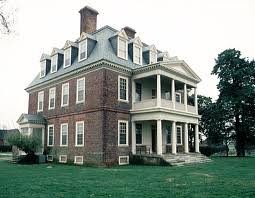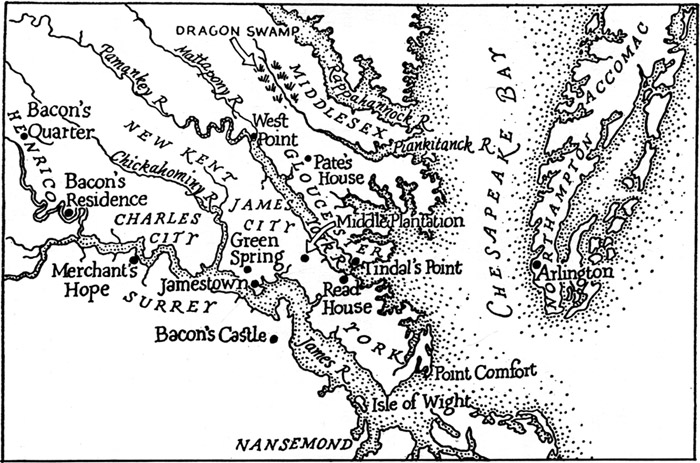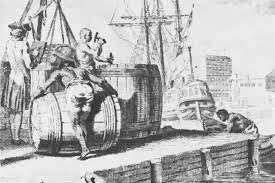Charles City County, Virginia Genealogy, Wills, Estates, Marriages

Marriages
- Marriages to 1699
Miscellaneous Wills
- Byrd, William, LWT (1700)
- Byrd, William, LWT (1774)
- Clay, John, LWT (transcript)
- England, Francis, LWT (transcript)
- Gregory, John, Jr., LWT (transcript)
- Harrison, Benjamin, LWT (transcript)
- Izard, Rebecca, LWT (transcript)
- Munford, Robert, LWT (transcript)
- Munford, William, LWT (transcript)
- Rogers, John, LWT, transcript <lilstith, john,=”” lwt=”” (transcript)=”” <li=””>Tyler, John, LWT (transcript</lilstith,>
Digital Images of Wills and Estates 1655 to 1656
Digital Images of Wills and Estates 1689 to 1690
Digital Images of Wills and Estates 1724 to 1731
Digital Images of Wills and Estates 1766 tp 1774
(names of testators of above records not provided due to lack of space)
Digital Images of Wills 1789 to 1808
Taylor Family History
Digital Images of Wills 1808 to 1824
Names: Testators: Adams, Joh ;Apperson, Martha ;Ballard, John; Barrow, Philip; Bates, James Sr.;Blanks, Thomas; Bradley, Benjamin; Bradley, John ;Bradley, Marston; Bradley, Thomas; Bradley, William; Brewer, Eleanor ;Brown, Dixon;Byrd, Ann Willing ;Byrd, Mary; Carter, Anne ;Cary, David ;Christian, John; Christian, Susanna; Christian, William ;Cole, Major ;Cole, Tally ;Coupland, Ann; Cowles, Nathaniel; Crew, Jacob ;Crew, John Sr.;Demville, Elizabeth; Dixon, Ann;Dixon, Anthony Tucker; Edloe, Ann ;Egmon, Cornelius; Egmon, Frances ;Emery, Mary ;Evans, Robert; Ferrel, Caleb ;Filbales, John; Finch, Richmond; Folkes, Catherine; Fry, Elizabeth ;Gannaway, Thomas; Gill, Thomas;Gill, illiam ;Gilliam, Jeffery; Glidewell, Drury; Gregory, Elley;Griffith, Amy ;Griffith, William; Hadin, Lucretia ;Hamblett, George; Hamblett, Thomas; Harrison, Braxton; Harrison, Collier ;Harwood, Elizabeth; Howell, William ;Hughes, Jeremiah; Irby, Francis Irby, Littleberry; Ireland, John; Kirby, Sarah ;Ladd, James D.; Ladd, Jesse ;Ladd, John ;Ladd, Joseph; Lightfoot, Philip I.; Lightfoot, William ;Maddox, Michael ;Major, Edward; Major, John ;Mannin, John; Miles, Richard; Minge, George William Hunt; Moody, Matthew ;Mountcastle, Elizabeth; Murrell, William M. ; Nance, William ;Nelson, William ;New, Jess ;New, ally ;Philbales, Mary; Raglin, Richard ;Roper, David ;Ross, Ann ;Royall, John; Royall, William ; Snipes, John ;Southall, Ann ;Southall, Philip; Southall, William;Towler, Luke ;Trappell, Martha; Tyler, John ;Vaughan, Henry; Vaughan, James;Vaughan, Sarah ;Warden, Joseph ;Whitt, Isham ;Wilkinson, Thomas; Wills, John ;Winston, Susanna
Indexes to Probate Records
- Wills and Deeds 1655 to 1656
- Inventories and Guardian Accounts 1789 to 1808
- Wills and Inventories 1808 to 1824
Miscellaneous
- Orders 1650; 1672-3; 1677-9; 1680; 1685; 1687-95
- 1667 Land Grants
- 1704 Quit Rent Rolls
Traced genealogies and family histories of Charles City County are available to Members !
| Batte | Dunn | Jones |
Indian Fields

